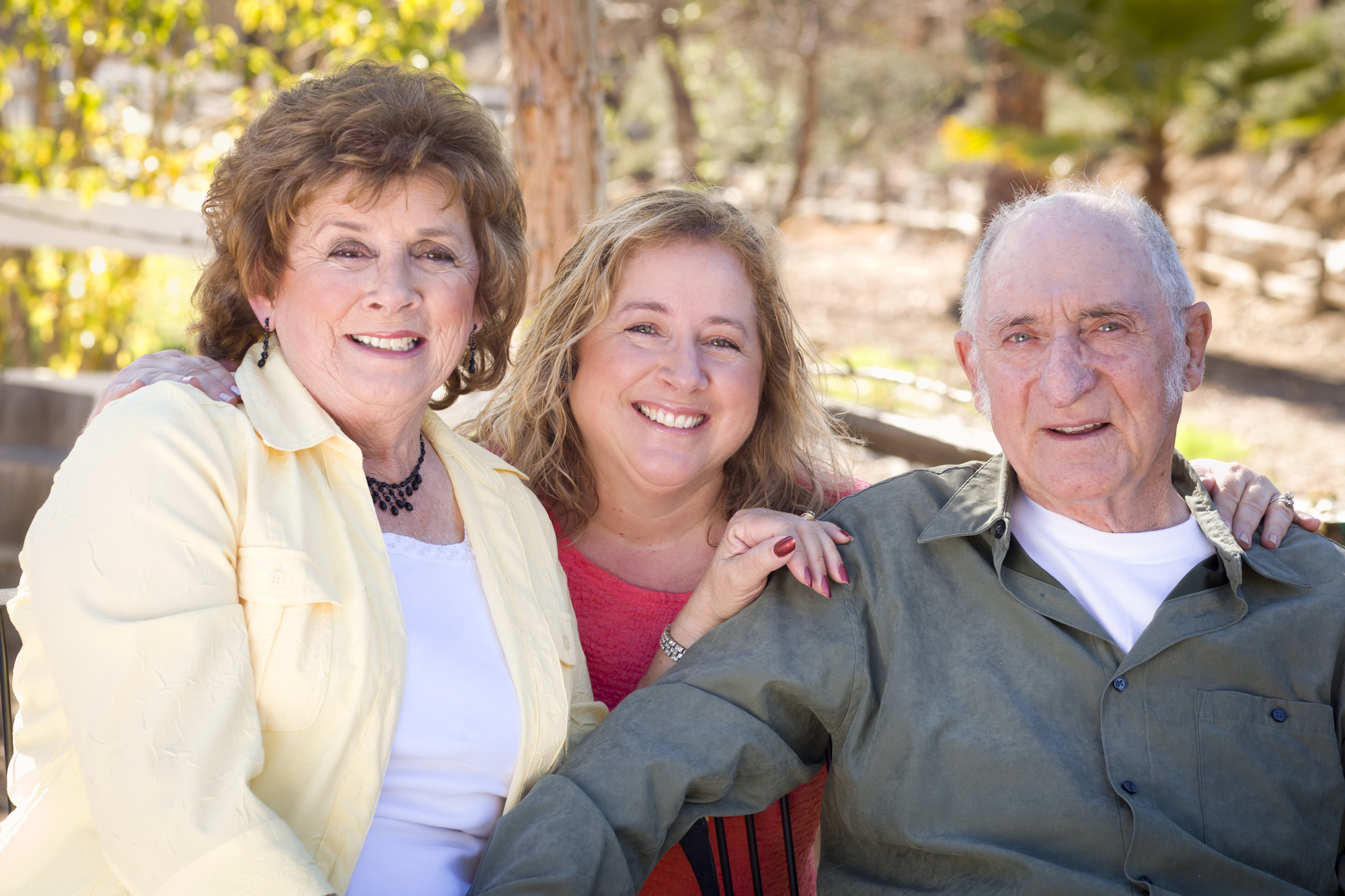The Reality of Caring for Aging Parents and How to Cope

As small children, we look up to our parents. They are often our sole caregivers so to us they represent strength and safety.
They keep us away from harm and teach us about life. We learn how to become successful, happy adults because of our parents.
Then the inevitable happens. Our parents begin to age. They start having health challenges when before they seemed to be the strongest things on the planet.
Sometimes their mental health changes, too. And it’s not just difficult for them. Seeing our parents age is incredibly difficult for us children to experience.
As we slowly become our parent’s caregivers, it can begin to take a toll on our mental and physical health unless we’re careful. To ensure both you and your parents are properly taken care of, keep reading to learn how to cope with caring for aging parents.
When to Start Caring for Aging Parents
One common problem all children experience with aging parents is knowing when it’s time to step in and start caring for our parents. Mostly because no person likes relinquishing their independence to someone else.
Many children start worrying when mom or dad has difficulty remembering a word or what the date is. However, that’s also just a normal sign of aging and many parents find it irritating and embarrassing to have their children point out perceived mistakes.
To ensure you don’t further alienate an aging parent, let’s take a look at some of the red flags that your parent may require a bit of extra help at home.
Signs Your Parents Need Additional Care
Parents getting older isn’t anything new but we need to become more aware of the actual signs that mean it’s time to step in and help out.
Keep in mind that while your parents may have a few of these signs, if it’s not impeding on them taking care of themselves, you don’t need to do anything right away.
It’s when their quality of life has significantly been lowered due to their mental and/or physical health declining. You might notice a parent having difficulty keeping track of their time and missing important appointments frequently.
If a parent who used to be energetic is now sleeping for most of the day, it’s a sign something isn’t right with them. If they begin eating a poor diet or you see significant signs of weight loss, it’s time to make sure they see a doctor.
Mood changes and a loss of interest in their regular hobbies and activities is also a sign something may not be right. You also need to be concerned if a parent is frequently forgetting to take their medication or take incorrect dosages of the medicine.
Physical Signs
Look to see if your parent has difficulty getting around. That includes difficulty with walking, balance, and mobility, including getting up from a seated position.
Lastly, if you are beginning to find unexplained bruises, injuries or a parent seems confused more often, it’s time to step in and speak up.
Choosing Between At-Home and a Facility
Supporting aging parents isn’t always easy. Especially if they refuse to help themselves.
There may be a point where you have to decide whether at-home care or the care provided in a facility is the better choice for how to handle elderly parent decisions.
One way to start is to have you and your aging parents plan ahead together. That way, when the time comes, the decision has already been made.
Often, there’s a lot of fear around being sent to a nursing home. Partly because many aging parents feel they will be dumped off here never to hear from their families again. Then there are all those stories about elderly abuse.
By researching options ahead of time, supporting aging parents can be a lot less stressful for everyone. Let’s take a look at the options.
At-Home Care
Parents getting older is inevitable. At some point, they may require additional support to help them take care of themselves.
At-home care is one way to ensure your parents are properly taken care of. You can become their part-time caregiver or you can hire a professional nurse to become their aide.
Some parents require a full-time caregiver while others may simply require someone to come in to help them out with chores like cooking and cleaning for a few hours every day.
Independent Living Facilities
Independent living facilities is really just a fancy name for your parents moving into a retirement or continuing care community. There, they’ll find many other people within their own age group.
Your parents will be able to maintain their independence. Some places also provide extra levels of needs as your parent’s age. Most are funded privately.
Assisted Living Facilities
Assisted living facilities are great for children who no longer know how to deal with elderly parents on their own and/or a private home nurse is too expensive or unable to provide the type of care your parent requires.
At an assisted living facility, there’s direct support from trained staff members available 24/7. Most facilities allow residents to keep their independence and they usually have their own small apartment located at the facility.
Depending on the facility’s licensing, tiered levels of care may be available to address the increased needs of your loved ones.
However, assisted living facilities aren’t cheap. Many care costs are paid for out of pocket since most insurance companies won’t cover everything.
The national average cost is $3,750 per month.
Skilled Nursing Facilities
A big part of parent caring is knowing when you can no longer tackle it on on your own. Most of us will need additional help supporting aging parents.
There may come a time when your parent is unable to take care of themselves because of mental and/or physical illnesses. Most of us aren’t skilled medical professionals.
We need to work and take care of our own families. The strain and stress of caring for an aging parent may end up making us sick.
At skilled nursing facilities, your aging parents receive full medical care and assistance with all activities of their daily living 24/7. There are different types of skilled nursing facilities available.
For instance, those suffering from Alzheimers or dementia may do best in a Memory Care Facility. The staff there is trained to treat patients suffering from memory issues. To find out more, click here.
Keep in mind that these facilities aren’t cheap. Even if your parent shares a semi-private nursing home room, the cost is around $7,148 per month.
Coping With Emotional Challenges
Parents getting older physically is tough to watch. You witness your once strong-as-an-ox father suddenly finding it difficult to get in and out of a chair.
Your mom gets exhausted from cooking dinner for one when she used to host dinners for 30. But with a little extra help, it’s manageable.
The toughest part of aging parents are the emotional challenges that both you and they face. It’s especially tough because you can’t readily see mental changes like you can physical ones. Instead, they creep up on you, making it difficult to handle.
Let’s go over some common emotional challenges aging parents and children alike must cope with.
Guilt
Feeling guilty is a useless emotion when dealing with parents getting older. Basically, no matter what you do or say, there is always the feeling of, “could’ve, should’ve, would’ve”.
In other words, no matter what you do, you always feel you could do better. The flip side is that you feel your parents could, should, and would do better as you helplessly watch their health decline.
To deal with guilt, learn how to recognize the signs and triggers. Then lower your standards and just do things one day at a time. Trust you’re doing the best you can for everyone and let the guilt go.
Anger
When you’re learning how to deal with elderly parents, you’re going to find yourself getting angry. Maybe you’ve had a bad day or a parent’s health took a turn for the worse.
Maybe your support relief bailed. Perhaps you just haven’t gotten enough sleep.
You’re going to get angry. It’s a normal emotion but if you don’t let it out, you’ll end up making yourself sick.
Find ways to handle your anger. Get a therapist, exercise, get enough rest, and learning to let your anger go in healthy ways can all help.
Resentment
When you feel like you’re the only one support aging parents, it’s easy for resentments to grow. Your other siblings aren’t doing enough or your husband and children don’t seem interested.
Perhaps your own parents are stubborn and won’t listen to reason and you feel resentment towards them as you try to help them.
Resentment is normal. Being aware you feel this way helps. Journaling or blogging about your feelings can also bring relief.
Loneliness
Both you and your aging parents might feel loneliness. You may feel isolated because your sole focus is caring for your parents.
They might feel isolated because it’s harder for them to get out and socialize. Many of them have already lost many of their social circle.
Try to reach out to others at this time or join a support group.
Educate Yourself
Caring for aging parents is easier when you know what you’re facing. Keep educating yourself.
Our blog can help you care for yourself and your parents. We share tips on how to live better and even how to have more fun.
Click here to read our useful tips.

